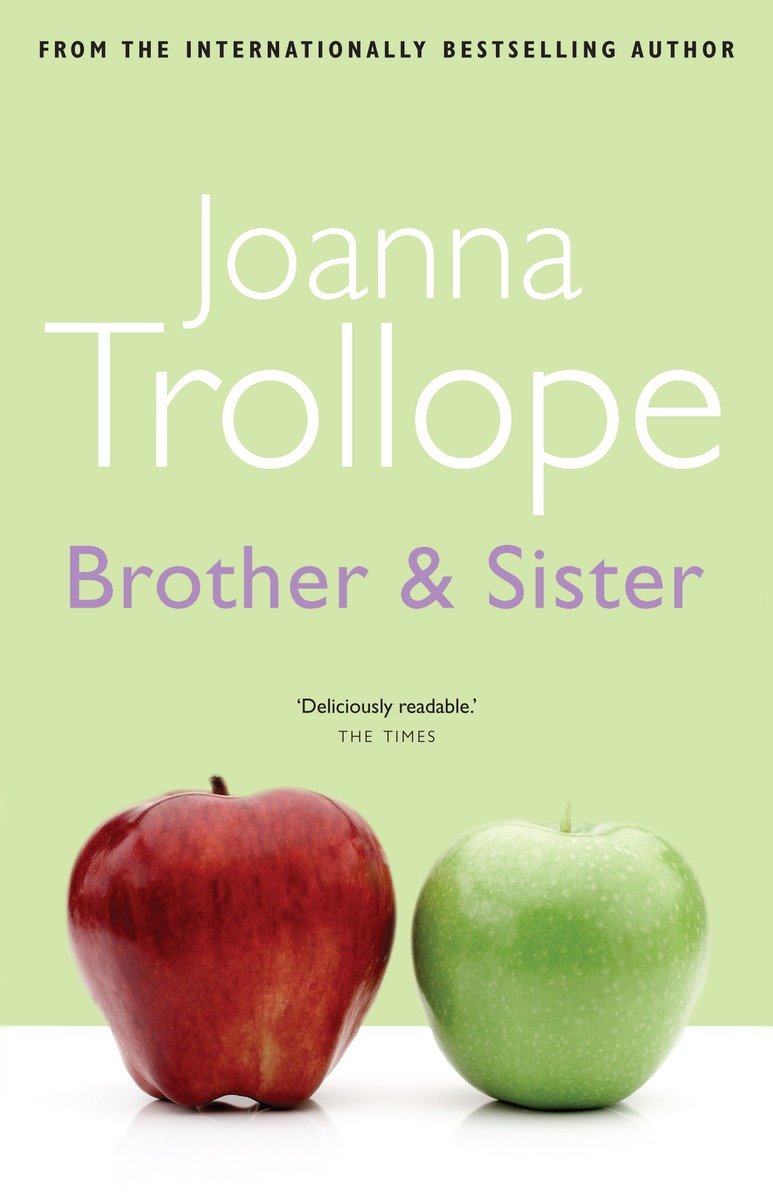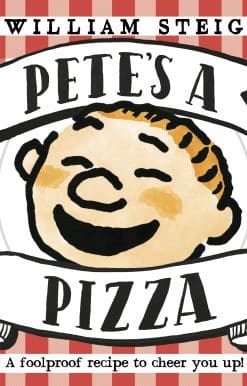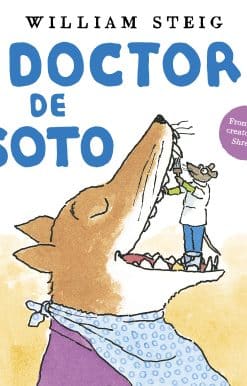Brother & Sister
| by |
|---|
14.00 JOD
Please allow 2 – 5 weeks for delivery of this item
Description
Nathalie and David have been good and dutiful children to their parents, and now, grown-up, with their own families, they are still close to one another. Brother and sister. Except that they aren’t — brother and sister that is. They were both adopted when their loving parents found that they couldn’t have children themselves, and up until now it’s never mattered. But suddenly Nathalie discovers a deep need to trace her birth parents and is insisting that David makes the same journey. And through this, both learn one of the hardest lessons of all: that sometimes the answers to who we are and where we come from can be more difficult than the questions.By turns frustrating, humorous, and heartbreaking, Brother and Sister explores how the unforseen circumstances of life-altering decisions can upset the delicate balance of family life.
Additional information
| Weight | 0.29 kg |
|---|---|
| Dimensions | 2.11 × 13.04 × 20.27 cm |
| PubliCanadation City/Country | Canada |
| by | |
| Format | Paperback |
| Language | |
| Pages | 400 |
| Publisher | |
| Year Published | 2010-4-6 |
| Imprint | |
| ISBN 10 | 0307357708 |
| About The Author | JOANNA TROLLOPE has been writing for over thirty years. Her enormously successful contemporary works of fiction, several of which have been televised, include Other People's Children, Marrying the Mistress, Girl from the South, Brother & Sister, Second Honeymoon, and her most recent bestseller, Friday Nights. She was awarded the OBE in 1996 for services to literature. |
"Trollope has an incisive — and deadly — eye for the minutiae of modern family life" — Observer"Joanna Trollope's latest novel about the emotional turmoil that is family life. . . .Astute, humane and as readable as ever." — Mail on Sunday"Trollope aims for the heart, and she hits it."— The New Yorker"Deliciously readable." — The Times"A pageturner — pacy, absorbing and compassionate." — The Daily Mail"A superbly observed, intense study of tight, narrow lives, of explosion and resolution." — Herald |
|
| Excerpt From Book | Chapter One From where he sat, Steve could see right down the length of the studio. He could see across the width, too, from one stripped brick wall to the other, and then right up high, right up into the roof space where the seventeenth-century beams – still suggestive, somehow, of the sinuous lines of the branches and trunks they had once been – formed their crooked and purposeful patterns. He’d designed the lighting so that even in the evenings, even on the darkest days, the eye would be drawn upward, as it was in cathedrals and domes. It was comforting to look upwards, comforting and encouraging. He’d spent hours over the last eight years since the studio was finished looking upwards at those wandering beams and thinking about the trees they had once been, about the sky that was still there above them, through the roof. He liked the measurelessness of those thoughts, just as he liked this nameless, neutral time at the end of each working day, when everyone else had gone home leaving him alone to let his mind slip quietly down through all the jarring preoccupations of the previous hours and lie peacefully at the bottom of some still pool of not quite thinking. It was a running joke in the office that Steve had to be the last to leave. It was the same with the navy-blue name board above the ground-floor window: ‘Steven Ross and Associates’, it read, ‘Designers’. ‘And who might those associates be?’ Titus said. Titus had worked for Steve for three years. He was twenty-seven, short and square and vigorous, with the elaborate courtesy of manner that sometimes results from an old-fashioned English upbringing. ‘Because it doesn’t appear to be me.’ ‘It’s a name,’ Steve said, pretending to read some papers. ‘It’s just a name. To register the company.’ ‘Not my name,’ Justine said. She was straight out of art college and rolled her own cigarettes. She winked at Titus. ‘Might be one day,’ Steve said. ‘If I think you’re worth it.’ She liked that. She didn’t want straight flirting, but she wanted a challenge from Steve, she wanted him to see that even though she still bit her nails she had drive and focus. When she came for an interview, he’d looked through her portfolio in complete silence and then he’d said, ‘Good.’ It was her seventh job interview and nobody had done anything before but sigh and say they hadn’t actually got a vacancy after all. She lived for months on that ‘Good’. Steve stretched himself slowly, luxuriously upright on his stool – Swedish, ergonomically designed – and contemplated his small and satisfying empire. He looked at the original elm floorboards – enormously wide: whatever size could the trees have been? – and the angular outlines of Titus’s desk and Justine’s desk, and the serene, almost clinical area where Meera did the accounts and administration with heart-lifting orderliness. Steve tried very hard not to indulge himself over order, not to nag about neatness. He endeavoured to remember that the precision which seemed to be such a balm to his soul should be properly and appropriately applied to work but should not – emphasize that not – spill over into the rest of life. It was Nathalie who had alerted him to this. Years ago, before he even found this collapsing urban cottage with all its demanding potential as a workplace, he’d tried to persuade her to move in with him. She’d looked at him doubtfully. ‘Thing is,’ she’d said, ‘you’re a bit – well, a bit careful.’ He’d been wounded. ‘You mean fussy,’ he’d said, ‘you mean anal.’ She sighed. She ran her forefingers under her eyes as if she thought she’d smudged her mascara. ‘Well—’ ‘I don’t just take trouble with things,’ Steve said insistently, ‘I take trouble with people. I pay attention to people.’ Nathalie closed her eyes. Steve leaned towards her. He said unwisely, ‘Of all the people I’ve ever met, you need me to do that. You need me to pay attention to you.’ Nathalie’s eyes snapped open. ‘That,’ she said sharply, ‘doesn’t sound like careful to me. That sounds like control.’ He’d been chastened. He could remember the feeling still, the hot air of righteous self-justification rushing out of him in a deflating instant. He’d recalled his mother saying, over and over during his childhood and growing up, about some small choice that was absolutely, reasonably, hers to make, ‘I don’t think your dad would like it.’ ‘Sorry,’ Steve had said to Nathalie. He was full of a thick shame. ‘Sorry.’ There was a photograph of Nathalie in the studio, trapped inside a rectangular perspex block and fixed to the wall close to Steve’s desk. She was wearing a denim shirt and she was holding her long dark hair up with both hands on top of her head in a loose pile, and she was laughing. Beside her was another perspex block containing a photograph of Polly. Polly was five. She had Steven’s soft curly hair and Nathalie’s sooty-edged eyes. In the photograph, she was looking straight ahead from under the brim of a flowered sun hat, serious and determined. She had just started school, registered as Polly Ross-Dexter because Nathalie wouldn’t give up her surname, and Steve couldn’t have the school thinking that he wasn’t Polly’s father. There’d been a struggle about which name should go first, and Nathalie had only relented in the end on grounds of euphony. This was not a victory, Steve reflected, that had given him any pleasure at all. He let his gaze travel upwards, from the evidence of Meera’s organizational skills to the haphazardness of those of the seventeenth-century roof builders. He’d often tried to work out the stresses among the beams up there, the reasons for their positionings, whether these had been from deliberate calculations or from something altogether more ad hoc, more let’s try this, let’s try that. It hadn’t been a very grand cottage after all, perhaps the house of one of the Huguenot weavers who had fled to England after persecution in France and adapted their competence with silk to an equal competence with the wool that had made Westerham prosperous in the days before the spa waters were discovered and the town became gentrified. When Steve came upon the cottage – he was twenty-seven and humming with notions – it was slumped, decaying, between its more elegant early-nineteenth-century neighbours, and was being used as an indoor reclamation yard, piled with old doors and chimneypieces and floorboards. Its restoration had required a loan from the bank that he was still painfully paying off. When he took it out, he’d wanted to say to Nathalie, ‘That’s hardly being careful, is it?’ but he hadn’t quite dared to, he hadn’t wanted her to have the chance – which she might well have taken – to say, ‘And exactly who is this great carelessness for?’ Of course it was for him. He could bluster about the benefits it would bring for them both, for any children they might have, and he would always have known otherwise, deep in his heart of hearts. He was the one, after all, who lived in the skin of the boy who’d grown up in a back bedroom of the Royal Oak pub out on the Oxford Road, whose father had been so angry at his desire to go to art college that they hadn’t spoken for over two years. His mother had crept about between them appeasingly, bringing food parcels to the bedsit the college had helped him find, and always getting back to the pub before opening time. He’d thought he wanted to be a photographer – that’s what he’d set his heart on doing. He’d had fantasies about going back to the Royal Oak and slapping down on the bar, under his father’s nose, a national magazine, or a Sunday-newspaper supplement with a double-page spread of beautiful black-and-white shots taken by none other than Steve Ross. But something had interfered with that plan, something had occurred during that first foundation year when everyone else was faffing about making installations out of mirror tiles and painting murals with twig brooms. He’d spent one single morning in the design studio and had known that somehow he’d come home. He’d loved it, completely, immediately; he’d seen the point of the simultaneous precision and creativity, he’d grasped the extraordinary pyschological effect of tiny adjustments, in placing or proportion. It was clean, pure, clever, and it was for him. He’d promised him self, cycling to college on the morning of his nineteenth birthday, that he wanted to be – was going to be – a designer with his own studio. He was going to show himself. He was going to show his father. He got off his stool now, and picked up his waste bin. It was his last task of every day, and yet another source of amusement to Titus and Justine, this rounding up of waste bins in order to tip the contents into the shredder, ‘Steve’s shredder’. ‘Can’t Kim do it?’ Titus said, leaning comfortably against Steve’s desk. Kim came in at nine, three evenings a week, to clean. ‘No,’ Steve said. ‘Confidentiality?’ ‘Mmm,’ Steve said. ‘Or,’ Titus said, folding his arms, ‘as Kim is probably as interested in the contents of our bins as she would be in a print-out of the Hang Seng index, could it be that she isn’t really to be trusted with the shredder.’ ‘Go away,’ Steve said. He tipped the contents of his bin into the machine. It would reliably be only paper. So would Meera’s. Titus’s and Justine’s bins however hid banana skins and gum wrappers and old Band-Aids. Occasionally, Titus would also leave the tiny packet from a condom, to see if Steve noticed. Titus’s sex life seemed, by all accounts, to be a cheerful affair, mostly conducted with girls considerably taller than he was. Sometimes Steve wondered if Justine would have liked to join them. He put the bin back under his desk and straightened up. The photograph of Polly was directly in front of him, her don’t-you-fool-me eyes on an exact level with his own. She seemed quite happy at school, not troubled by anything; in fact, perhaps not troubled enough since her form teacher, Nathalie reported, had gently said that Polly appeared to have some difficulty concentrating and that they should have her hearing checked. Steve touched one ear involuntarily. Nothing wrong with his hearing, never had been. Downstairs, in the reception area, the street door banged loudly. ‘Only me!’ Titus shouted. Steve moved towards the staircase that led down from the studio. ‘Forgotten something?’ ‘I’ve got someone with me!’ Titus called. Feet crossed the reception area and started up the stairs. A woman’s voice said, ‘This is so cool.’ ‘Steve will love that,’ Titus said. ‘Won’t you, Steve? You’ll love it that Sasha thinks this place is cool.’ Titus emerged into the studio, pink-cheeked from the cold outside. He wore a vast scarf, muffled up round his neck and ears like a student. ‘Sorry to come back,’ Titus said, grinning. ‘I know you like us to go when we’ve gone.’ A woman appeared from the staircase behind Titus. She was inevitably much taller than he was, and older, possibly in her mid-thirties, with thick pale hair cropped close to her skull. She held her hand out to Steve. ‘I’m Sasha.’ ‘Hello,’ Steve said. Titus put his hands in his pockets. ‘We’re on a bit of a mission,’ he said. ‘We had an impulse—’ ‘I did,’ Sasha said, smiling at Steve. ‘It was my impulse.’ ‘Can you spare us five minutes?’ Titus said. Steve said, ‘I was on my way home, to read to Polly.’ ‘Polly?’ ‘My daughter,’ Steve said. He indicated the photograph briefly. ‘She’s five.’ Sasha peered. ‘Adorable. Five. So it’s all Barbie and Angelina Ballerina.’ Steve smiled at her. ‘Anything pink.’ ‘I love pink,’ Titus said stoutly. He unwound his scarf and dropped it over the angled edge of Justine’s desk. ‘Explain to him, Sash.’ She hesitated. ‘It’s a bit cheeky—’ ‘Titus is cheeky,’ Steve said. ‘Except that it isn’t Titus, it’s me.’ ‘Well, then—’ ‘I’m doing a project,’ Sasha said. ‘I’m doing a course, a counselling course, and I’m doing a thesis on identity, personal identity, where we come from, how we define ourselves. That sort of thing.’ Steve thought briefly of the Royal Oak. He looked at Sasha’s hands. They were long and supple and she had a plain silver band on each thumb. ‘The thing is—’ Sasha went on and stopped. She looked at Titus. ‘Your project,’ he said airily. ‘Titus told me about your wife.’ ‘Partner,’ Steve said. Sasha looked briefly at Polly’s photograph. ‘Sorry—’ ‘What about Nathalie?’ ‘That she’s adopted,’ Sasha said. Steve looked at Titus. ‘Did I tell you that?’ ‘Yup.’ ‘I wonder why,’ Steve said. ‘I don’t usually. I don’t think about it.’ ‘Don’t you?’ Sasha said. He looked at her. She was very attractive in a bony, bold way, with that pale seal-pelt hair. He smiled kindly. ‘No,’ he said pleasantly, ‘I don’t need to. She doesn’t need to. It isn’t an issue.’ ‘But—’ ‘Sorry,’ Steve said, ‘but Nathalie isn’t traumatized. She’s always said she’s glad she was adopted, that she’s had the choice of being who she wanted to be.’ ‘I’ve never felt like that,’ Titus said. He put his hands in his pockets. ‘I know exactly where I come from and almost none of it is what I’d have chosen.’ Sasha leaned forward. ‘I really didn’t mean to invade anything—’ ‘You haven’t.’ ‘It’s so fascinating, though,’ Sasha said, ‘that she doesn’t mind.’ ‘She used to tease me,’ Steve said, ‘about what she called my battles with my bio-folks. She never had those. Battles, I mean.’ Sasha looked at Polly’s picture again. ‘We shouldn’t keep you.’ ‘No.’ ‘But – but do you think she’d talk to me?’ ‘What?’ Steve said. ‘Nathalie talk to you about adoption?’ Sasha gestured with her big, flexible hands. The rings made her thumbs look oddly truncated. ‘It would be so interesting. It would be such a contrast, you see, such a completely other take on the accepted wisdom, such a refreshing change—’ ‘From what?’ ‘From the acknowledged violence of the primal wound.’ ‘The what?’ ‘Don’t get her started,’ Titus said. Sasha said clearly, as if quoting, ‘The abandoned baby lives inside every adoptee all his life.’ Steve smiled. ‘Not in Nathalie.’ ‘So fascinating,’ Sasha said again. She thought for a moment and then she said, ‘Do you think she’d ever talk to me?’ Steve moved away a little to the panel on the wall that controlled the lighting. ‘I can ask her.’ ‘Would you?’ ‘Sure,’ Steve said. ‘I mean, she may feel it’s private, but I know she doesn’t feel it’s secret. I can only try.’ He put a hand on the switches and turned to look at Sasha over his shoulder. ‘Do I describe you as Titus’s girfriend?’ ‘If you like,’ Titus said. He picked up his scarf again and looped it round his neck. Sasha looked down at him. ‘If I like,’ she said. ‘Down you go,’ Steve said, ‘I’m shutting up shop.’ Titus went past him and down the staircase with practised, easy speed. Sasha paused before following him. She was almost as tall as Steve, almost six foot perhaps. ‘Thank you,’ she said. He pressed the switches and the studio sank silently into darkness. ‘Can’t promise anything.’ ‘No, but thank you for trying.’ He looked at her briefly and indicated that she should precede him down the stairs. ‘I’ll let Titus know,’ he said. Steve cycled home. He’d had bicycles all his life, from what was excruciatingly known as a fairy cycle – given to him by a good-natured customer of his father’s – to ride round the back yard of the Royal Oak when he was four, to this twenty-eight-gear mountain bike he’d found on a skip behind the cinema with its saddle missing. There was a seat attached to the back of it, for Polly, in which she rode wearing a pale-blue cycling helmet stencilled with cartoon characters from Winnie-the-Pooh. They went swimming together by bike, and shopping for all the screws and catches necessary to fix things at the weekends, and to have tea with Polly’s grandparents at the Royal Oak. Sometimes Steve wondered if Polly would remember these trips when she was older, the reassuring sight of her father’s back, the absurd sight of his safety helmet. Her expression on the back of the bike, Nathalie told him, was both grand and impassive, like a pasha on a palanquin. The street where they lived was, like the studio, on the edge of one of Westerham’s better areas. It was a street of flat-fronted houses built of the pale limestone so familiar locally, with short flights of steps leading directly from door to pavement. Steve and Nathalie had found their flat five months before Polly was born, a long, ground-floor flat with access at the back to a strip of garden with a plum tree and a shed. ‘Men like sheds, don’t they?’ Nathalie said. She had wanted the flat much more than Steve had, because of the garden and being pregnant. ‘I thought a shed would swing it for you.’ Steve had had something else in mind. He’d imagined a first-floor flat, with long windows and moulded cornices, something as far away as possible from the dark, crouched rooms of the Royal Oak. ‘I could have a washing line,’ Nathalie said, one hand on her belly and the other on the plum tree. ‘The baby could sleep out here.’ ‘Yes,’ Steve said. ‘It’s got a good kitchen,’ Nathalie said. ‘And its own front door.’ Steve looked at her. He thought about the studio and his ambitions; he then thought about how both those would seem to him without Nathalie. ‘Can we compromise? Can we say five years here and then think again?’ Five years were now up. Polly was five and one month, and her tiny clothes had indeed dried on a line strung between the fence and the plum tree. Nathalie had made the flat very – well, pretty, was the word Steve would choose, charming, comfortable. All those appealing, unthreatening capacities she had displayed at art school – she had specialized, in the end, in textiles – were evident in the home she had made for Steve and Polly. And it was a home, no doubt about it. If you defined a home as the setting of all your domestic life complete with all required emotional and practical attachments, that was what Nathalie had made. As he cycled up the street, he could see the saffron-coloured oblong of his own lit front window, the window of his kitchen-living room where Polly would have eaten her supper off the pine table and possibly drawn him a picture featuring herself, very large, and her parents, somewhat smaller, and then, in purple or pink – her favourite colours – the dog she had set her heart on having. She had always liked dogs, even after being knocked over, down some steps, by a bounding Alsatian when she was two. ‘So odd,’ Nathalie said, ‘I don’t like dogs.’ He dismounted from his bike and wheeled it into the dank covered area between their house and the next one. He’d had plans for this passage once, visions of pale paint and trellising, and those plans had subsided like so many, subsided into the studio, into family life, into the relentless march of the hours and days and weeks. He sometimes thought about all the time he’d had as a child, all those acres of time lying quietly, dully about him, so many of them that sometimes he couldn’t think how they were to be filled. Whereas now . . . Well, now time just seemed to bundle him forward, like someone impatiently, ceaselessly dribbling a football. He let himself into the dark garden. A light fixed to the outside wall shone down on Polly’s Barbie bicycle, lying on its side on the paving, and a neat row of flowerpots, under plastic, in which Nathalie was trying to grow auriculas. He put his key in the lock, and let himself into the bedroom, lit only by the light shining down from the passage beyond. ‘Home!’ he shouted. There was a thud of feet. Polly came racing down the passage and then stopped, as she always did, several feet away from him. ‘I nearly went to sleep,’ she said. ‘You don’t sound very sleepy—’ ‘I was going to turn the light off. I was going to.’ He bent to kiss her. She smelled of shampoo and Marmite. ‘But you didn’t,’ he said. ‘And now I’m here.’ She turned round and marched back up the passage. Her pyjamas were too big for her and gave her the look of a miniature rapper. Nathalie appeared in the doorway of Polly’s bedroom. ‘He’s back,’ Polly said resignedly. ‘Sorry,’ Steve said, ‘I got caught up with some scheme of Titus’s.’ Nathalie liked Titus. He came to supper sometimes and drew dogs for Polly. ‘That’s OK.’ Steve leaned forward and kissed Nathalie’s cheek. ‘I want Miffy,’ Polly said. ‘Does it have to be Miffy?’ ‘Yes,’ Polly said. Nathalie moved past Steve towards the kitchen. She said as she went, ‘We saw the ear man.’ ‘What?’ Steve said. He looked after her, irritably. She was in the habit of doing that, walking away while saying something he needed to hear. He followed her. ‘What?’ Nathalie didn’t turn. ‘We saw the ear man. Polly and me. You knew we were going to.’ ‘Did I?’ ‘Yes,’ Nathalie said. ‘You did. We talked about it.’ ‘No, we didn’t.’ ‘Actually,’ Nathalie said, ‘you’re right. No, we didn’t. I talked and you didn’t listen.’ Steve took a breath, glancing to see where Polly was. Then he took another and said in a deliberately friendly voice, ‘Well, what did he say?’ ‘There’s some malformation. A sort of blockage. Something obstructing the middle ear.’ Steve said, more loudly, ‘There’s a malformation in one of Polly’s ears?’ ‘He wanted to look at mine. He wanted to see if there’s anything similar in one of mine. He said it was a hereditary kind of thing, a sort of quirk, like a bent finger or the way hair grows.’ ‘And did he find anything?’ Nathalie shook her head. ‘No.’ Polly came into the kitchen, holding her Miffy book. ‘Miffy!’ she said commandingly to her father. Steve glanced down. ‘Aren’t you getting a bit old for Miffy, sweetheart?’ He went round to the other side of the table so that he could see Nathalie’s face. She was looking down at the table, and her hair had swung forward. ‘Nat. Is this serious?’ She said, ‘He says it’s quite a simple operation. It’s just the removal of some cartilage really. But lots of aftercare, because ears are so complicated.’ ‘Will it hurt?’ Nathalie nodded. He leaned forward and touched her arm across the table. He said comfortingly, ‘They’ll deal with that. They won’t let it hurt her. They’re brilliant at pain control now.’ ‘Miffy!’ Polly shouted. ‘Two minutes, sweetheart,’ Steve said. ‘Nat?’ ‘It isn’t that,’ Nathalie said. She crossed her arms and held herself, as if she were cold. ‘It’s a simple operation and everything. I know that.’ ‘Well then. Is it her hearing? Is her hearing affected?’ ‘It is now,’ Nathalie said. ‘Yes. Yes, I know. But will the operation improve things? Surely, isn’t that the point, isn’t the obstruction the thing—’ ‘I’ve been feeling sick all afternoon,’ Nathalie said. Steve waited. Polly came and stood beside him and held up her book. ‘Just a sec, Poll—’ ‘No secs,’ Polly said. ‘Now.’ Steve bent down and picked her up. She held the book in both hands three inches from his face. ‘Miffy.’ ‘Yes. Miffy. I can see.’ ‘I’ve never felt like this before,’ Nathalie said. ‘I’ve never thought this way. I mean this is a small obstruction in Polly’s ear, it isn’t even a big, frightening thing that lots of parents have to face, it’s just a little thing, a matter of mechanics, really. But – but, well, in his surgery today, I just felt awful, lost. I thought – I thought, what else don’t I know?’ Gently Steve pushed the book down with one hand so that he could see across the table. ‘Sorry?’ Nathalie raised her head. ‘What else don’t I know about where Polly’s come from?’ Steve looked at Polly. He gave her a wide smile. ‘Of course we know where Polly’s come from. Don’t we, Poll? You’ve come from Mummy and Daddy.’ Polly flapped her book. She said warningly, ‘I might get cross.’ ‘It’s before that,’ Nathalie said. ‘Beyond that. I suddenly felt I was in a space. A void.’ Steve adjusted his hold of his daughter. ‘You’ve never talked like this before.’ ‘I’ve never felt like this before.’ ‘You can’t mean,’ Steve said, ‘that we run up against some small problem in Polly’s ear, a problem that it appears can easily be sorted, and you suddenly lose all your confidence?’ Nathalie looked at him. ‘Why not?’ ‘Because – well, because it isn’t reasonable.’ ‘This isn’t about being reasonable.’ She turned aside. She said something in a muffled voice. ‘What?’ ‘I said this isn’t about reason. It’s about feelings. And feelings – well, feelings have memories.’ Steve swallowed. He looked at Polly. Her gaze was fixed implacably on his face, indicating that she was simply going to force him to read a book to her that they both knew was intended for three-year-olds. Steve gave Polly a smile. He wondered, even as his mouth stretched, whether it was shamefully appeasing. ‘Tell you what,’ Steve said. He looked at Nathalie. ‘Polly and I will go and read Miffy, and you ring your mum.’ ‘I thought of that—’ ‘Well, do it.’ ‘But I think I would rather ring David.’ ‘What is the point,’ Steve said, his voice betraying the effort of control, ‘of ringing your brother?’ ‘Because he’ll understand.’ ‘Down,’ Polly said. ‘Let me go.’ Steve lowered her to the floor and stayed crouched beside her, his arms still round her loosely. ‘But, Nat, he isn’t your real brother, I mean, he hasn’t got your ears, or Polly’s ears. He’s just the brother you grew up with . . .’ Nathalie moved away. Steve turned his face to Polly’s. Her eyes were only a foot from his. ‘Which ear, Poll?’ She touched one. And then the other, and shrugged. ‘Miffy,’ she said in a baby voice. ‘Now, now, now.’ ‘Yes!’ ‘Two stories,’ Polly said, sensing victory. ‘OK—’ ‘Two stories and the train-whistle song.’ ‘OK—’ Steve stood up. Polly grasped his hand firmly. He glanced at Nathalie. ‘Are you really going to ring David?’ ‘Yes.’ Steve made a huge effort. ‘Give him my best,’ he said. |
Only logged in customers who have purchased this product may leave a review.
Related products
-
On backorder 2-5 Weeks to Arrive
7.99 JOD -
On backorder 2-5 Weeks to Arrive
7.99 JOD -
On backorder 2-5 Weeks to Arrive
9.99 JOD






Reviews
There are no reviews yet.